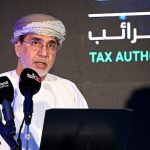The absence of OpenAI’s ChatGPT in China has paved the way for a new generation of artificial intelligence startups in the country. These startups are backed by major regional investors and are developing advanced AI systems capable of generating various types of content, such as images, text, and music. This has posed a significant challenge to OpenAI’s global supremacy in the generative AI space.
Four key startups have emerged as leaders in China’s AI sector, each achieving unicorn status with valuations exceeding $1 billion. Zhipu AI, supported by tech giants like Alibaba Cloud and Tencent, leads the pack with a valuation of $2.5 billion. They focus on providing comprehensive AI solutions and have a team of 800 employees. Moonshot AI, also valued at $2.5 billion, targets students and office workers with its text summarization technology, and their AI chatbot Kimi has experienced rapid growth.
In addition to Zhipu AI and Moonshot AI, MiniMax and 01.ai are also making waves in China’s AI market. MiniMax, based in Shanghai, utilizes anime-themed characters to engage the gaming market, while 01.ai focuses on open-source models tailored for the Chinese market. The competition between these startups reflects China’s adaptability and innovation in the AI industry as they strive to become leaders in generative AI.
With approximately 262 AI-focused startups in China offering alternatives to ChatGPT, the race for AI dominance in the country is intensifying. These startups have the potential to reshape the future of generative AI by challenging OpenAI’s position and unlocking new possibilities for the industry. As they continue to grow and advance, China’s AI startups are poised to make a significant impact on the global AI landscape.










